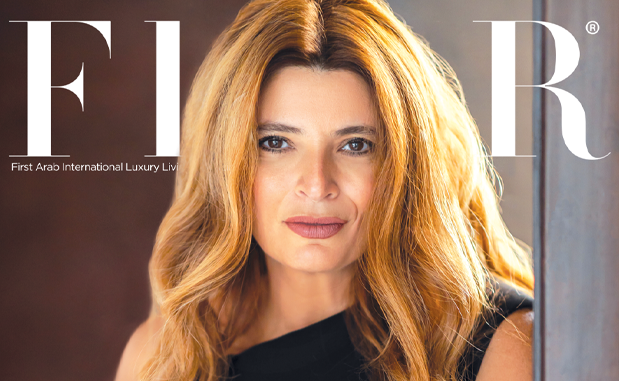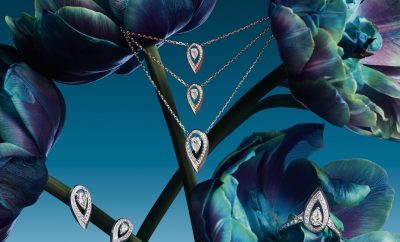
Interviews
Dr. Hussam Nabil Marks A New Approach To Psychiatry
Mental wellness is key for a good life, says therapist Hussam Nabil
Psychotherapy is a workout for the mind
Success is a state of mind
Egypt must introduce itself to the world through nation branding
The story of Hussam Nabil, psychotherapist and founder of Naya Clinics, is inspirational. From majoring in political sciences to traveling the globe as a marketeer and finally a successful entrepreneur, Nabil has many stories to be told about building a career, starting a business on alien ground, or realizing a childhood dream of helping others for a living. Yet, Nabil’s pride does not stem from his attested success. He is most proud of himself being a father, husband, and Egyptian citizen.
As globalization continues shrinking the world, it becomes more important now than ever for youth to have someone, or something, to look up to – a role model, a history, or an entire civilization. For Egyptians in particular, owning up to ones’ identity should be built from an early age, Nabil tells youth through an interview with Flair Magazine.
You have recently trademarked a new therapy approach. How is it different from the traditional approach?
Yes, I have recently developed and tested a new therapy approach over the past six years. Trademarked as Positive Existential Therapy, this new approach combines the best out of other traditional therapy approaches. Positive Existential Therapy is a flexible approach that caters to patients’ needs by building a human relationship between the therapist and the patient, which, studies have shown, accounts for 70% of progress in psychological treatment. Moreover, it is very humanistic in how it addresses people as human beings rather than machines that are undergoing cognitive behavior restructure in the traditional approach while drawing from the depth of the existential approach to create an approach that is both deep and relational with a very strong philosophical component that can be particularly more relatable to the young generation.
By developing this new approach and using it at Naya Clinics, we have become the Tesla of mental wellbeing by being a progressive provider of mental wellbeing services. Our ethos, vision, and mission revolve around helping people become their best selves. It is important to point out that we do not only work on mental issues, as wellbeing is a spectrum, not a binary system. Therapy to the mind is just as important as working out for the body.
Did you think Naya Clinics was successful because it was founded in the US?
No, I don’t think the location of any startup has anything to do with its success. That said, it is important to examine the market and understand it before taking an idea to it. And this is an essential part of being an entrepreneur. I intended to launch Naya Clinics in El Gouna, Egypt, but I fell in love in the US and got married so I had to move my plan there.
It is in my personal experience is that geography doesn’t impact the success of a startup. It’s all about the personality, vision, execution, and finding a new way of doing things to overcome a problem. This skillset is needed regardless of the location.
What are other skills you think entrepreneurs must-have?
Looking back at how I started my practice, I see that being a risk-taker is important. I have always been this way. My clients have found comfort in the fact that I have traveled and experienced different cultures, which set me apart from other therapists. I also immediately started seeking expansion outside the USA to Egypt, Qatar, UAE, and Saudi Arabia, where access to mental wellness services is lacking.
I would say being tenacious is the most important character for an entrepreneur to never give up and always come up with solutions for dictating issues. I think anybody can become an entrepreneur if they set their mind on it. I somebody has the vision and the passion to do something and is willing to work hard to overcome a few obstacles, they can. As the saying goes, life is going to through curved balls on us and many events will happen to derail our best-laid plans. This is why I see flexibility to roll with the punches as also essential.
From your experience in the US – how do you think Americans perceive Egypt?
There is a major time zone problem. Many Americans, or any foreigners really, see Egypt as it used to look like thousands of years ago. They think of Egypt as dunes over the horizon with nothing, but tall pyramids and camels topped by pharaohs around them. There is also a religious component as some see it as where the exodus took place or as a country where only men are allowed outdoors.
This is why I think Egypt could use nation branding to capitalize on the positive developments in the country and leverage its rich history in engaging more people through PR and targeted marketing.
We need to raise awareness of how Egypt is truly the cradle of civilization and the many ways it has influenced the history of humanity.
For example, only a minority of people know that the Statue of Liberty was initially made as a traditional Egyptian woman wearing Abbaiya and holding a torch to guide the ships as they navigate into the Suez Canal. Changing stereotypes is done by communicating with the public and showing them that there are 100 mn different people in Egypt.
It is also important to leverage the success of some of our events, such as the recent Golden Parade or by holding more sports tournaments in Egypt or organizing film festivals and art exhibitions. It is important to rebrand Egypt to become a synonym for uplifting, success, and civilization. Here, I would like to offer my services as a professional marketeer with vast experience in organizing global events and as an entrepreneur abroad to help my country at any time and in any way my skills can be found helpful.
Speaking of sports tournaments – you have highlighted the importance of mental wellbeing in sports. How so?
I believe that a mental toughness coach must be part of every sports team. All of the world’s top teams and athletes rely on mental coaching. This would help Egyptian sports advance.
Case in point, in football, for example, the national team plays better if not under pressure because they play for fun. The same players perform much poorer because when under immense pressure. Mental preparation serves to help athletes reach optimum levels regardless of pressure.
What do you think youth need?
Youth’s biggest problem is identity separation from Egyptian roots. Many youths today have lived in a time when Egypt was not doing great. This was in conjunction with access to the internet. They saw how the world looks and compared it to Egypt. For many, it pushed them to not want to be Egyptians. Some youth don’t speak or write in Arabic. They refuse to be Egyptians but cannot turn foreigners.
This is the responsibility of the government and the older generations to showcase the country and the civilization in the best form and to create role models for youth.
I ask youth to cultivate their vision. You cannot do something if you don’t know what it is you want to do. Visualize the life you seek and ask yourself why you want it. Your life will fall into place once you have figured this out because now you know what you want.
And to the government I say, there is no future without youth. We have to showcase Egypt in the best way to the youth and build bridges between the different generations to help them consolidate the identity and work for a brighter future for themselves and their country.
For further information visit http://nayaclinics.com/
By: Mohamed Ezz










0 comments